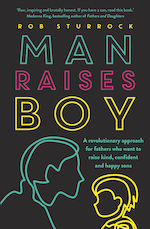On first inspection, it looks like things are moving in the right direction. Most dads in Australia—about 80 per cent, in fact—do take time away from work when their child is born.
Young dads in particular want to put family at the centre of their lives. In 2017, Nielsen conducted a survey of millennial Aussie dads. It estimated that of the 877,000 millennial dads, 83 per cent believed family was more important than career, and 58 per cent said they had a good work/life balance.
This shift in attitudes seems to be supported by some behavioural changes. Research by the Diversity Council of Australia found that young fathers want more flexible work arrangements, with 79 per cent preferring to choose their start and finish times and the same percentage preferring to work a compressed week. The Council also found that 37 per cent of young fathers had “seriously considered” leaving an organisation because of its lack of flexibility. The same thing is happening in other parts of the world. In the United Kingdom, a 2019 survey of 2000 dads aged between 24 and 40 found that one-third of dads had changed jobs since becoming a father, and another third were actively looking for jobs that would give them a better work/life balance, meaning that two-thirds of those dads were looking to improve their work/life balance so they could be at home more. Studies also show that the men choosing to be stay-at-home parents have less traditional views of gender roles, seeing caring as every parent’s responsibility.
RELEVANT: What it’s like to be a stay-at-home dad
Fathers are starting to get more vocal advocates as well. Men in the media spotlight are starting to speak up about how much they love fatherhood and how they handle being a dad (not just Russell Brand waxing lyrical). To name a few examples, Thor (Chris Hemsworth) and Wolverine (Hugh Jackman) have spoken publicly about how to maintain as normal a family life as possible while leading life as a megastar. Crooner and TV presenter David Campbell fills his Instagram pages with joyous images of him playing with Lego or watching Star Wars with his three kids. And the Pied Piper of toddlers all over Australia, Jimmy Rees—better known as Jimmy Giggle from ABC Kids—uses his Insta account to show the beautiful chaos and long days of having a toddler alongside baby twins, and how he juggles his work and family responsibilities. There are plenty of others. These blokes help normalise the idea that men can actively care for their family while holding down a job too.
In 2019 we saw a bunch of global and Aussie companies upgrade their parental leave policies in an effort to encourage fathers to do more caring. Spotify and Diageo now each offer six months’ paid parental leave to mums and dads, and have ditched outdated notions of “primary” and “secondary” carer. Telstra has done something similar, offering 16 weeks’ paid parental leave to both parents equally. Norton Rose Fulbright, a law firm, offers 18 weeks’ paid leave that can be taken up to two years after the birth of a child—and workers are eligible to use this leave from day one. Financial services firm Deloitte is encouraging its men to take 18 weeks’ paid leave at the birth of their children. ING became the first bank in Australia to offer its employees 14 weeks of paid parental leave, removing the primary and secondary labels as well.
RELEVANT: The motherhood penalty
Given the emerging change in personal and corporate attitudes, perhaps there won’t be reprisals for young dads taking time to be a father and not a worker. Perhaps there will be a clean transition to a new way of doing things. In June 2019, Ipsos Mori did research in the United Kingdom showing that only 13 per cent of men thought taking paternity leave had a negative impact on a man’s career. This finding should give us hope that a change is happening now. Perhaps the fatherhood revolution, fuelled by flat whites, rolling prams and sleep deprivation, is underway already, and domestic and workplace equality beckons. Maybe, within a few years, seeing a dad taking care of his kids during the week will be a wholly unremarkable thing.
Or maybe the revolution is a lot further away than we’d like—if it’s coming at all.
The “demographics is destiny” argument is often used to argue that change is inevitable because the views of the younger generation are simply different from those of the earlier ones. But unless you’re Thanos, you can’t just overturn 300 years of social and economic engineering with a click of your fingers. The Industrial Revolution left a large imprint on our society, and on the role of men. Men continue to occupy a rigid role in the family, and our workplaces still reinforce that role. Our dads remain tightly tethered to their jobs and the pressure to earn, as well as the identity a career so often gives them. They struggle to break free as a result. In fact, the way we work, and the way we structure our time, still has a lot in common with the way things were done in earlier times, despite the fact we’re two decades into the twenty-first century.

This is an edited extract from Man Raises Boy by Rob Sturrock, published by Allen & Unwin.
How helpful was this article?
Click on a star to rate it!
0 / 5. 0
Be the first to rate this post!
Rob Sturrock
Related posts
Subscribe
Receive personalised articles from experts and wellness inspiration weekly!

